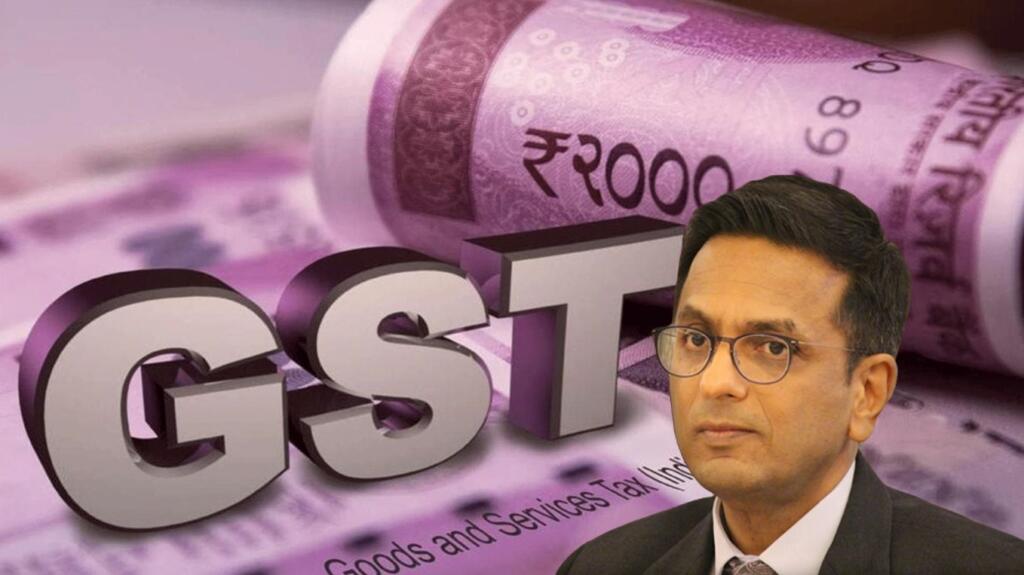The debate to interpret the type of Indian federalism is still going on, and on various occasions, the court has given varying judgments on varying principles related to the same. Although the nature of federalism is somewhat interpreted between unitary & classical federal principles but the final understanding of the same is yet to be decided.
In the case of Union of India & Anr versus M/s Mohit Minerals Pvt. Ltd, the Supreme Court of India has once again interpreted the Centre-State relations under the shadow of Cooperative & Collaborative federalism. Hearing the case related to the double taxation conflict, the Court has interpreted the GST (Goods & Services Tax) Council’s stature in the Indian Constitution in terms of persuasive and recommendatory not mandatory in nature.
The Court’s argument against the Centre’s claim that the recommendations of the GST Council are binding on the Union and the States is that
- “It would violate the supremacy of Parliament and State legislatures since both have a simultaneous power to legislate on GST.”
- “It would violate the fiscal federalism of the States since the Center has a one-third vote share and the States collectively have a two-third vote share. Therefore, no recommendation on a three-fourths majority can be passed without the consent of the Center.”
Also Read: While Congress criticises GST, Manmohan presents an award to the GST Council
Another battlefield of Centre-State fight
It is pertinent to mention here that Article 279A was inserted in the Indian Constitution by the 101st Constitutional Amendment Act, 2016 and the article calls for the establishment of a GST Council which will consist of the Union Finance Minister (Chairperson), the Union Minister of State in charge of Revenue or Finance (Member) and the Minister in charge of Finance or Taxation or any other Minister nominated by each State Government (Members). Further, the State’s members of the GST council will choose one amongst themselves to be the Vice-Chairperson of the Council.
Moreover, the article provides that every decision of the Council “shall be taken at a meeting, by a majority of not less than three-fourths of the weighted votes of the members present and voting”.
Although the government has said that “the court’s observations reiterated the scheme of things in the Constitution and GST laws” the expressed judgment will create another battlefield for the Centre-State relations.
Interpreting the GST Council in terms of Cooperative & Collaborative principles is true as the Council has been created with the consultation of both union and states on a consensus basis and the Article 368 itself provides that any Constitutional amendment which affects the powers of state shall be required to be passed by the Parliament with “a majority of the total membership of that house and by a majority not less than two-thirds of the members of that house present and voting and the amendment shall also require to be ratified by the Legislatures of not less than one-half of the States”.
In a way, the Constitution itself gives the collective power to States to bargain with the Centre related to any authority provided under the law. And, the 101st Constitutional Amendment was passed with a proper consensus of States. Moreover, the Council created after the amendment expressly provides for consensus-based decisions.
Read Also: Modi government is set to bring petrol and diesel under the purview of GST
If the decision itself is taken by the two-third voting pattern then it is obvious that states are giving the full authority to the Council to act on the conscience of its members which reflects that each state is in the favour of the fact that they bind themselves with decisions of the Council.
Moreover, the insertion of Article 279A in the Constitution itself is the reflection of the fact that States & Centre are working on the principles of cooperative & collaborative federalism, interpreting the political contestation in terms of ‘uncooperative federalism’ is an exaggeration of the politics of parties in power.
Any alternate interpretation of the very provision of Article 279A will create a different setup of misunderstanding between States & the Centre ultimately creating a different battleground for political fights between parties in power in States and Centre.
The Supreme Court’s argument that “GST Council is not only an avenue for the exercise of cooperative federalism but also for political contestation across party lines” is problematic because politics for votes and financial requirements of States are complementary. If States have themselves given the authority to the Council to recommend any decision, then they are clearly on the consensus of the fact that decisions are binding.
If for the sake of politics, some States are opposed to the decision of the Council then it should not be made the deciding factor of the collective conscience of the GST Council.
The Court’s decision that the Council’s decisions are recommendatory will be made ground by the vested political parties to politicize the Council which will ultimately lead to the policy paralysis related to taxes. The formation of the GST Council is a true symbol of collaborative and cooperative federalism but the decision will be weaponized by the political parties to gain political mileage.
